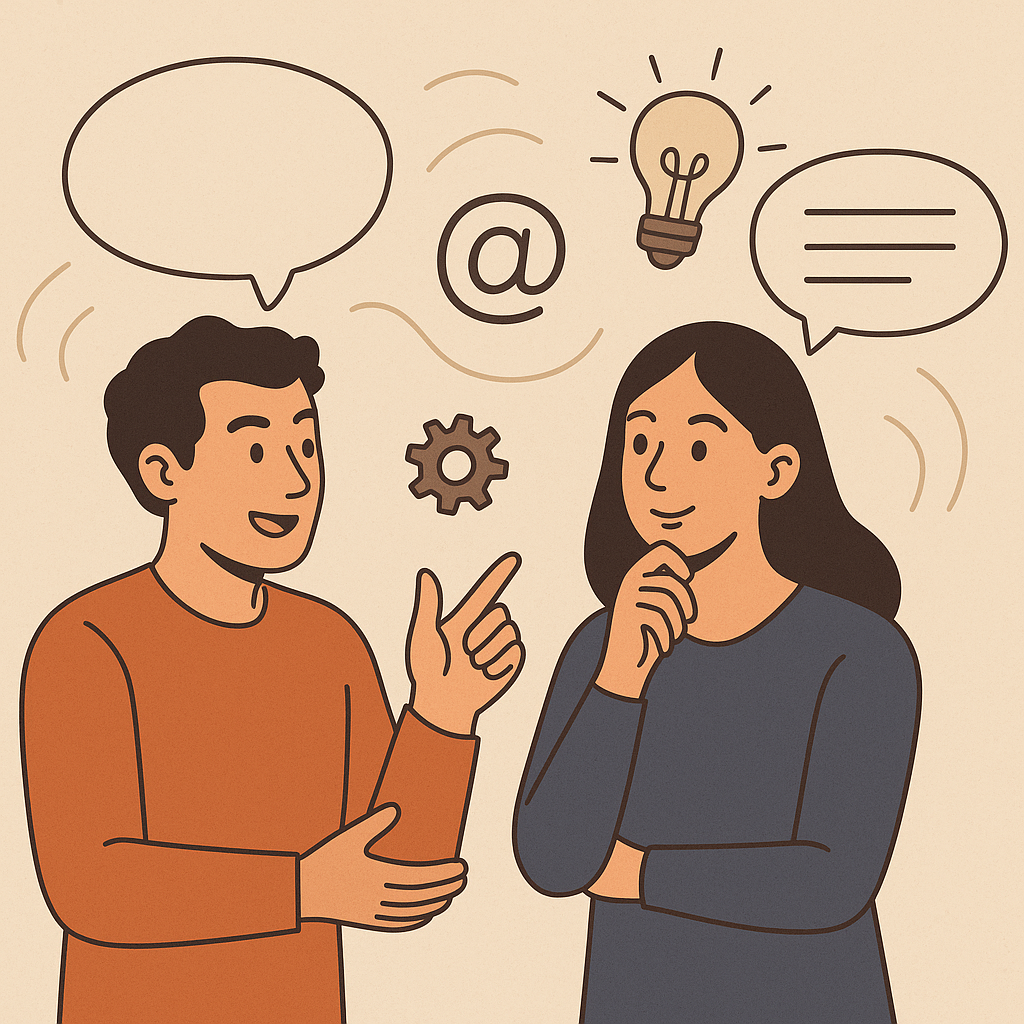Improving your communication skills doesn’t have to mean taking expensive courses or forcing yourself into awkward networking events. Thanks to behavioral science and a wave of tech-backed tools, you can improve communication skills and get significantly better at connecting with people—without working harder. The real shift? It’s not about pushing more; it’s about adjusting how you engage.
This article unpacks low-effort, high-impact strategies to improve communication skills without trying harder, especially by leveraging psychology, tech, and habit tweaks that make a difference over time.

Why Communication Skills Matter More Than Ever
In the age of remote work, digital-first collaboration, and nonstop Zoom calls, strong communication isn’t a nice-to-have—it’s non-negotiable. According to a 2024 report by the World Economic Forum, communication ranks among the top three most critical job skills, regardless of industry. Yet, people often misunderstand what it means to “improve” communication. It’s not about being louder, chattier, or more charismatic. It’s about being clearer, more aware, and more responsive.
So how do you level up without burning out?
1. Make Micro-Adjustments, Not Massive Overhauls
Improving communication often feels like a huge personality project. It doesn’t have to be. Research from the Harvard Business Review suggests that small behavioral tweaks—like pausing two seconds before responding or mirroring a speaker’s language style—can drastically boost your perceived effectiveness in conversations.
Simple Shifts You Can Make:
- Pause for 2 seconds before speaking to signal thoughtfulness
- Repeat a word or phrase the other person used to build subconscious rapport
- Nod occasionally to show engagement
- Use the person’s name early in conversation (but not excessively)
These micro-adjustments train your brain to stay present and connected without feeling like you’re putting on an act.
2. Use Tech That Boosts, Not Burdens
AI tools and apps are making communication support easier than ever. Think of them as the Grammarly of conversation. Tools like Otter.ai, Rewind, or even Notion AI can help you recall talking points, summarize meetings, or prep for calls by analyzing tone and structure.
If you’re camera-shy or struggle with on-the-spot thinking, use async tools like Loom or Yac to record thoughtful messages. These apps let you control your delivery while still being clear and personal.
Keyphrase use: Improve communication skills without trying harder by leveraging async video tools that reduce real-time pressure and allow you to express ideas with clarity.
Try These Tools:
- Otter.ai: Auto-transcribe conversations so you can focus on listening
- Hemingway App: Run your emails through it for simpler, clearer writing
- Loom: Record responses instead of typing long emails (great for tone)
3. Focus on Listening Over Speaking
Here’s an uncomfortable truth: most of us think we’re better listeners than we actually are. According to research from McKinsey, good listening is the backbone of effective leadership and collaboration. The most skilled communicators ask better questions and talk less—not more.
Low-Effort Listening Boosters:
- Ask open-ended questions (“How did that feel?” instead of “Did you like it?”)
- Use affirming phrases like “I hear you” or “That makes sense”
- Reflect emotions, not just facts (“Sounds like that really frustrated you”)
You don’t have to be a therapist. You just need to let people feel heard. That one shift? Game changer.
4. Improve Your Nonverbal Clarity
Communication is 55% body language, according to Albert Mehrabian’s widely-cited research. And no, you don’t need to master TED Talk gestures. You just need to become more intentional.
What Works:
- Keep your camera at eye level on Zoom to simulate eye contact
- Relax your shoulders and hands—tension shows up more than you think
- Smile lightly when introducing yourself or greeting someone
- Sit upright during calls (yes, even audio-only ones)
Nonverbal consistency increases trust. And the best part? These habits require zero extra effort once they become natural.
5. Watch One Short Clip Daily (Seriously)
This is the lazy genius tip: watch 1–5 minute clips of great communicators each day. Think Barack Obama, Brené Brown, or even your favorite TEDx talk. According to a 2023 study by the University of California, observational learning significantly improves both verbal and nonverbal communication.
Even short doses train your brain through mirror neurons.
Suggested Channels:
- TEDx (5-minute highlights)
- Harvard Business Review YouTube channel
- Vanessa Van Edwards (Science of People)
Pro tip: Choose one person and mimic their style for a week. You’ll notice subtle upgrades without even trying.
6. Set Defaults, Not Daily Goals
Trying harder to communicate better leads to burnout. Instead, set up systems. Defaults make good habits automatic. For example:
- Set your browser to open a “Quote of the Day” or public speaking tip each morning
- Use calendar invites with pre-written agendas for clearer meeting expectations
- Create a go-to message template for common communication scenarios (feedback, thanks, follow-up)
Systems over willpower—that’s how you improve communication skills without trying harder.
Final Thoughts
Improving communication doesn’t mean forcing yourself to be someone else. It means using small, strategic tweaks—backed by science and supported by tools—that take the pressure off and increase connection.
So, if you’re looking to improve communication skills without trying harder, remember this: it’s less about what you say and more about how you show up consistently. Small shifts stack. And over time? They compound into better relationships, clearer ideas, and more confident you.
References
- World Economic Forum (2024).
Future of Jobs Report 2024.
https://www.weforum.org/reports/the-future-of-jobs-report-2024 - Harvard Business Review.
“How to Become a Better Listener.”
https://hbr.org/2016/07/how-to-become-a-better-listener - McKinsey & Company.
“The most fundamental skill: Listening.”
https://www.mckinsey.com/capabilities/people-and-organizational-performance/our-insights/the-most-fundamental-skill-listening






